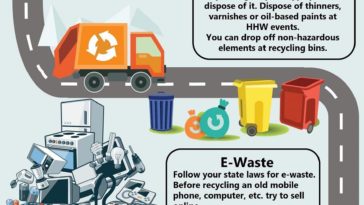The Development Of Dumpster Rental: Insights Right Into Its Past, Current Trends, And Future Innovations
The Development Of Dumpster Rental: Insights Right Into Its Past, Current Trends, And Future Innovations
Blog Article
Article Author-Jamison Iversen
As you contemplate the advancement of dumpster leasing, consider how each period has added to forming the waste monitoring landscape we browse today. From modest beginnings in the 1930s to the advanced modern technologies of today, the trip of dumpster rental has actually been noted by technology and adaptation. However what pushes the horizon for this essential solution? The future trends in sustainable practices hold the trick to unlocking a much more reliable and eco-conscious approach to squander administration. Stay tuned to discover just how open dumpster leasing market is positioned to embrace a greener tomorrow.
Historic Roots of Dumpster Rental
Check out the origins of dumpster service and exactly how it has actually shaped waste management methods gradually.
Dumpster rental traces back to the 1930s when George Roby Dempster, a Tennessee business owner, created the Dempster-Dumpster. This crucial production transformed waste disposal by offering a marked container for gathering and carrying trash efficiently. At first made junk removal of for building and construction sites, the idea rapidly expanded to residential and commercial setups, leading to the establishment of the first dumpster rental solutions in the 1960s.
Over the years, dumpster rental has dramatically affected waste administration practices by advertising convenience, sustainability, and organization. The capability to streamline waste in specialized containers simplifies collection processes, decreases littering, and enhances recycling initiatives. In addition, dumpster leasing urges people and businesses to adopt liable waste disposal practices, adding to cleaner settings and minimized eco-friendly influence.
Modern Innovations in Waste Management
Including advanced innovations and lasting techniques has changed waste administration in the last few years, enhancing performance and environmental impact. One significant technology is making use of smart waste administration systems that utilize sensing units to keep an eye on waste levels in real-time, maximizing collection courses and routines. These systems help reduce unnecessary pick-ups, lowering fuel consumption and discharges.
Another modern innovation is the execution of waste-to-energy centers, where non-recyclable waste is exchanged power with procedures like incineration or anaerobic food digestion. This not just decreases the quantity of waste destined for landfills yet also generates renewable resource.
Furthermore, the introduction of single-stream recycling has simplified the reusing process for customers, causing higher involvement rates and greater diversion from garbage dumps. Additionally, improvements in composting innovations have made organic waste management more reliable, transforming food scraps and backyard waste right into valuable garden compost for agricultural use.
Anticipated Trends in Lasting Practices
Sustainable waste administration methods are evolving swiftly to fulfill the boosting needs for environmental responsibility and resource performance. As you aim to the future, numerous key fads are expected to form the industry. One major focus will get on reducing waste generation via better product design and packaging. Firms will increasingly embrace circular economic climate principles, intending to minimize waste and make the most of the life expectancy of items.
An additional pattern to expect is the increase of advanced recycling innovations. Technologies in chemical recycling and pyrolysis are expected to offer new solutions for taking care of facility or contaminated waste streams that standard recycling approaches struggle to process effectively. These technologies have the prospective to revolutionize how we manage waste, transforming difficult-to-recycle materials right into important resources.
Furthermore, expect to see a greater focus on organic waste diversion. Composting programs and anaerobic food digestion facilities will come to be a lot more prevalent as communities strive to decrease the quantity of organic matter sent out to land fills. By purchasing these lasting practices, we can move towards a much more circular and resource-efficient waste management system.
Conclusion
Finally, dumpster rental has come a long way given that its creation in the 1930s. From its simple beginnings on building and construction sites to its extensive usage in domestic and commercial settings, the sector has actually continually progressed to meet the altering requirements of waste management.
With the introduction of modern technologies and a concentrate on lasting practices, the future of dumpster leasing looks appealing, with a solid focus on effectiveness, environmental duty, and technology.
